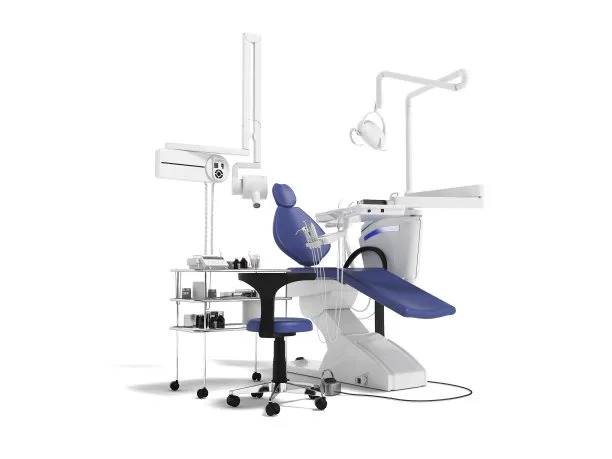Summary: Dental filling treatments are essential to restoring damaged teeth and maintaining oral health. To ensure a successful outcome, patients must take specific precautions before, during, and after the procedure. This article explores crucial strategies, including selecting a qualified dentist, understanding the types of fillings available, following proper aftercare instructions, and maintaining regular dental check-ups. Each of these aspects plays a vital role in ensuring the efficacy of dental fillings while safeguarding overall oral health.
1. Choosing the Right Dentist for Your Treatment

One of the most vital steps in ensuring successful dental filling treatment is selecting a qualified dentist. Look for a professional with appropriate certifications and experience in restorative dentistry. Reading patient reviews and testimonials can provide insights into the dentist’s skill and patient care quality.
Additionally, don’t hesitate to ask for recommendations from friends or family. Finding a dentist who makes you feel comfortable and valued can make a significant difference in your overall experience. A good dentist will take the time to explain the procedure and answer any questions you have.
Another aspect to consider is the dental clinic’s environment. A clean, organized, and welcoming clinic often indicates professionalism and adherence to strict health standards, which are crucial for successful dental treatments.
2. Understanding the Different Types of Fillings
Before undergoing a filling treatment, it’s essential to understand the various types of dental fillings available. Common materials include amalgam, composite resin, glass ionomer, and gold. Each type has its advantages and disadvantages, and a knowledgeable dentist can help you decide which is the best for your specific needs.
Amalgam fillings, for instance, are durable and typically used for back teeth, while composite resin offers aesthetic advantages as they can match the natural color of your teeth. Glass ionomer fillers release fluoride, providing additional protection against cavities, and gold fillings are known for their longevity but come at a higher cost.
Discussing these options with your dentist will enable you to make an informed decision, ensuring that your dental filling is not only functional but also harmonious with your overall dental aesthetics.
3. The Importance of Aftercare Following Treatment
After your dental filling, follow your dentists aftercare instructions carefully to promote healing and prevent complications. For the first 24 hours, its advisable to avoid hard foods, sticky sweets, and hot beverages to prevent discomfort or damage to the new filling.
Additionally, pay attention to any unusual symptoms, such as prolonged sensitivity or pain in the filled tooth. If these symptoms persist, contact your dentist immediately to address any potential issues before they escalate.
Good oral hygiene is crucial during this recovery period; brushing and flossing regularly helps protect the filling and your overall dental health. Incorporating a mouth rinse recommended by your dentist can further enhance your oral care routine.
4. Maintaining Regular Dental Check-ups
Regular dental check-ups are essential, not just for maintaining your fillings but for overall oral health. It’s recommended to visit your dentist every six months for preventative care and evaluations. During these visits, your dentist will assess the condition of your fillings and surrounding teeth, identifying any issues early on.
These appointments also provide an opportunity for professional cleanings, ensuring that plaque and tartar buildup does not compromise your dental work. Your dentist can provide personalized advice on further improving your oral hygiene practices based on your individual needs.
Establishing a good relationship with your dental provider promotes ongoing education regarding the best practices in maintaining your oral health. Regular visits allow for monitoring potential dental issues before they necessitate more extensive procedures.
Summary:
In conclusion, ensuring successful dental filling treatment requires thoughtful preparation and ongoing care. By choosing a qualified dentist, understanding your filling options, following aftercare protocols, and committing to regular check-ups, you can safeguard your oral health and prolong the life of your dental work. Taking these essential precautions not only supports the success of your filling procedure but also contributes to a healthier and brighter smile in the long run.
This article is compiled by Vickong Dental and the content is for reference only
Vickong Dental
Vickong Dental is a large medical group established in Hong Kong in 2008 by professors from well-known medical universities in Guangdong and Hong Kong, as well as medical doctors from key national '985' universities (including Master's supervisors and senior professors). The chain of branches brings together expert dentists with PhDs and Master's degrees from Hong Kong and Mainland China, committed to providing high-quality dental treatment.
"Vickong Dental Practices the University Motto of 'Healing and Serving Society,' with a Stable Operation for Sixteen Years. It Has Been honored with Hong Kong Enterprise Leaders's Choice,' and is a Global Trusted Implant Center for the Nobel Implant System. Recommended by Hong Kong Metro Broadcast and Guangdong Television, it Serves Customers from Over Thirty Countries and Regions, Gaining the Trust and Favor of Citizens from the Guangdong-Hong Kong-Macau Greater Bay Area and Surrounding Cities.

Thousands of customers' unanimous praise
The most recognized and highly recommended dental service by customers in the Guangdong-Hong Kong-Macau Greater Bay Area
We Ensure You Receive Detailed Care and Attention Here
Hong Kong standards, Shenzhen prices, Your Trusted English-speaking dentists

Vickong Dental Medical-Grade Instrument Disinfection Process
Vickong Dental Medical-Grade Instrument Disinfection Process

Vickong Dental Chain: A Warm and Comfortable Environment for Treatment






Appointment Hours

Q&A
Why choose Vickong Dental?
Vickong Dental practices the university motto 「Medicine to Benefit Society」, with each branch bringing together highly qualified dentists with doctoral and master’s degrees from Hong Kong and the Mainland, and has maintained seventeen years of steady operation。Recipient of 「2024 Hong Kong Enterprise Leaders Brand」, 「2025 Hong Kong Enterprise Leaders Brand」, a Nobel Biocare Global Trusted Implant Center, and a brand recommended by Metro Radio Hong Kong and Guangdong TV。
To date, we have served customers from more than thirty countries and regions,earning exceptionally high word-of-mouth recognition and trusted recommendations from residents across the Guangdong-Hong Kong-Macao Greater Bay Area and surrounding cities
We have eight major branches in Zhuhai、Shenzhen,and a consultation and service assurance center in Hong Kong,so you can book a free consultation at any time for any questions,which is very reassuring.
If I do not accept the quotation after the CT scan, will I be charged??
No! As long as the actual treatment has not started, you will not be charged any fees.
Will there be any additional charges during the treatment process?
No, there won’t be any additional charges. Before treatment begins, we will clearly explain the treatment plan and its corresponding fees. Only after the patient agrees and signs the consent form will we proceed with the dental service.
Can I pay in Hong Kong dollars?
Yes. Vickong Dental accepts payment in Hong Kong dollars. The amount will be converted based on the exchange rate of the day, and the applicable rate will be clearly communicated to you in advance.
Can I reschedule my appointment at any time?
Yes. Please contact us via **WeChat** or **WhatsApp** as early as possible, providing your original appointment time and details, along with your preferred new date and time slot for rescheduling.













